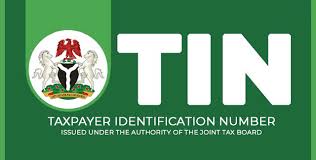Business
New Bill Requires Tax ID for Opening Bank Accounts

A newly proposed bill mandates that individuals must provide a tax identification number (TIN) before opening bank accounts, aiming to improve financial accountability and tax compliance.
A new bill has been introduced in Nigeria mandating that individuals involved in banking, insurance, stockbroking, or other financial services must provide a Tax Identification Number before they can open a new account or manage an existing one.
The legislation, known as “A Bill for an Act to Provide for the Assessment, Collection of, and Accounting for Revenue Accruing to the Federation, Federal, States, and Local Governments; Prescribe the Powers and Functions of Tax Authorities, and for Related Matters,” seeks to improve tax compliance and enhance revenue collection processes across the country.
The document, sourced from the National Assembly and dated October 4, 2024, declared: “Individuals involved in banking, insurance, stock-broking or other financial services within Nigeria must provide a tax ID as a prerequisite for opening a new account or managing an existing one.”
This requirement is one aspect of a larger initiative to ensure that every individual and entity involved in financial activities is appropriately registered for tax purposes.
The bill additionally specifies that any non-resident individual providing taxable goods or services to someone in Nigeria, or earning income from the country, is required to register for tax purposes and acquire a Tax ID.
READ ALSO: Bill Gates: Nigeria’s Tax Collection Rate is Insufficient
Non-resident individuals who earn only passive income from investments in Nigeria are not required to register. However, they must provide the relevant information as stipulated by the appropriate tax authority.
The proposed legislation additionally authorizes the appropriate tax authority to automatically register individuals and issue them a Tax ID if they are required to apply but have not done so.
In these instances, the tax authority must quickly inform the individual about their registration and the issuance of their tax ID.
If these requirements are not met, administrative penalties may be imposed. As stipulated in the bill, a taxable person who does not register for tax will face a penalty of N50,000 for the first month of non-compliance and an additional N25,000 for each following month.
The legislation additionally specifies that any non-resident individual providing taxable goods or services to a person in Nigeria, or earning income from within the country, is required to register for tax purposes and acquire a Tax ID.
News Related to This
Tinubu presents four tax reform bills to the National Assembly.
National Assembly embarrasses itself regarding Bobrisky.
The Federal Government intends to enhance port facilities.
Non-resident individuals who earn solely passive income from investments in Nigeria are not required to register; however, they must still submit the necessary information as determined by the appropriate tax authority.
The proposed legislation additionally authorizes the appropriate tax authority to automatically register individuals and issue them a Tax ID if they are required to apply for one but have not done so.
In these instances, the tax authority must quickly inform the individual about their registration and provide them with a tax ID.
If these requirements are not met, administrative penalties may be imposed. As stated in the bill, a taxable individual who does not register for tax will face an initial penalty of N50,000 for the first month of non-compliance and N25,000 for each additional month thereafter.
